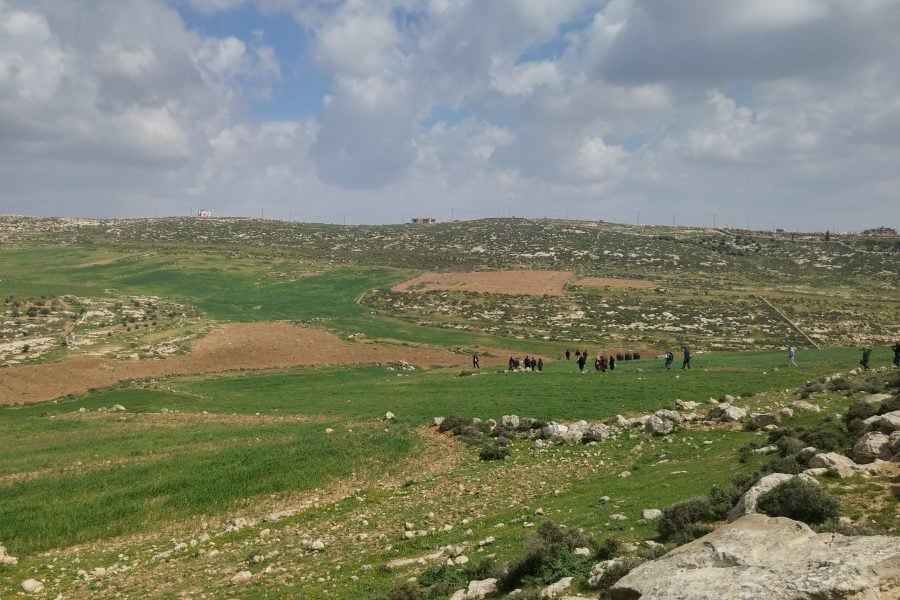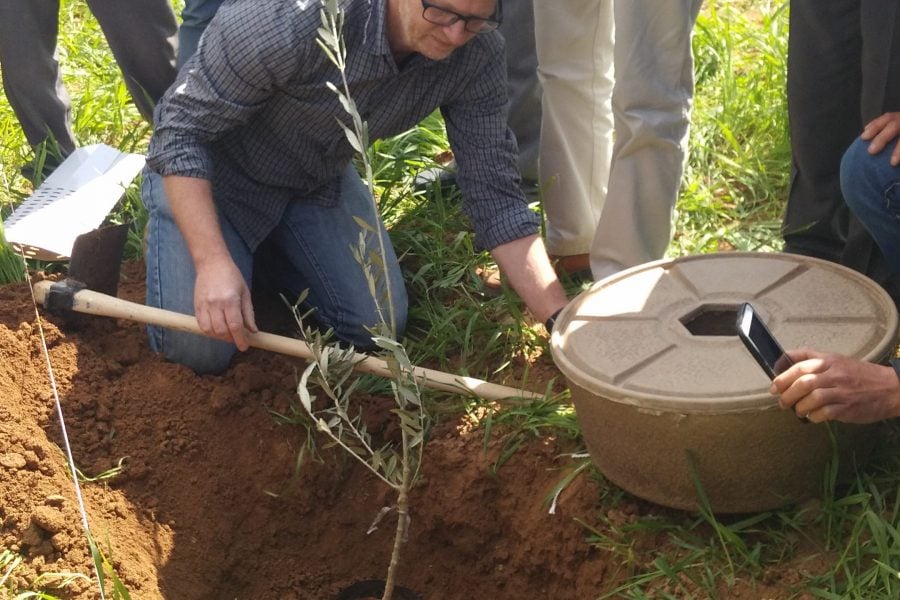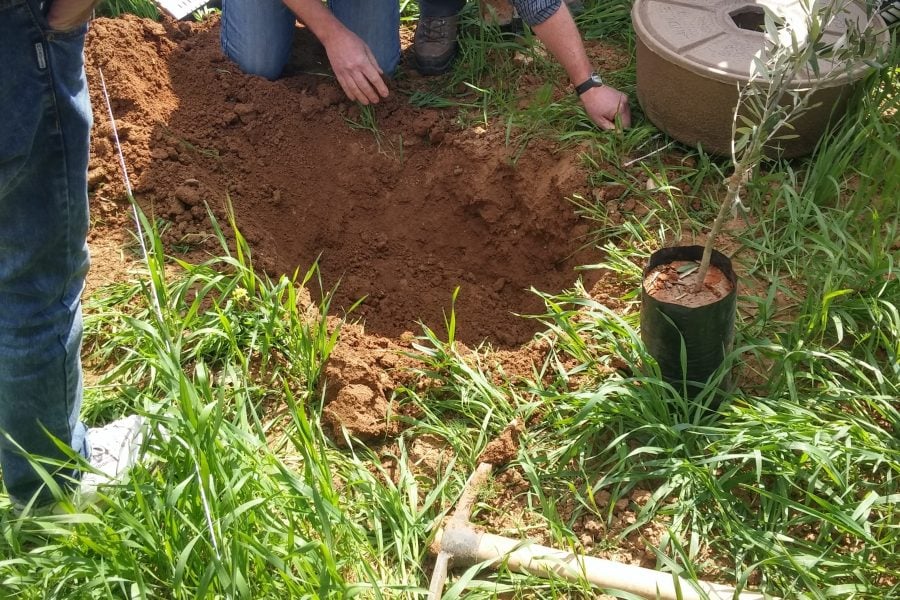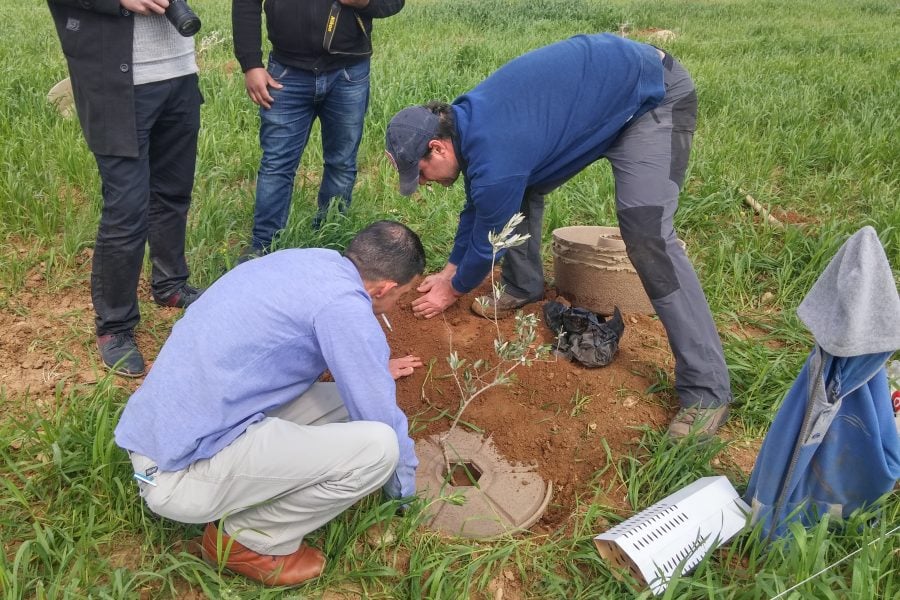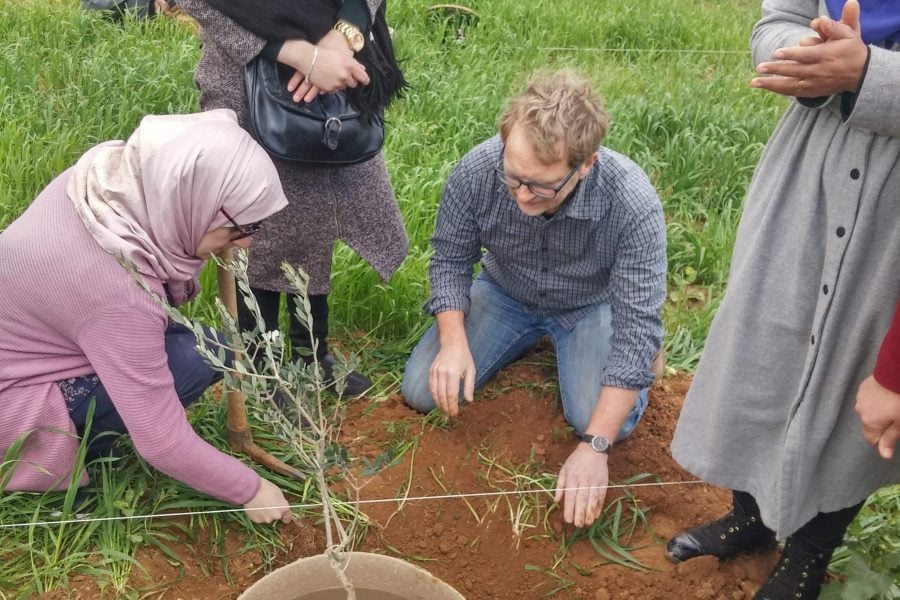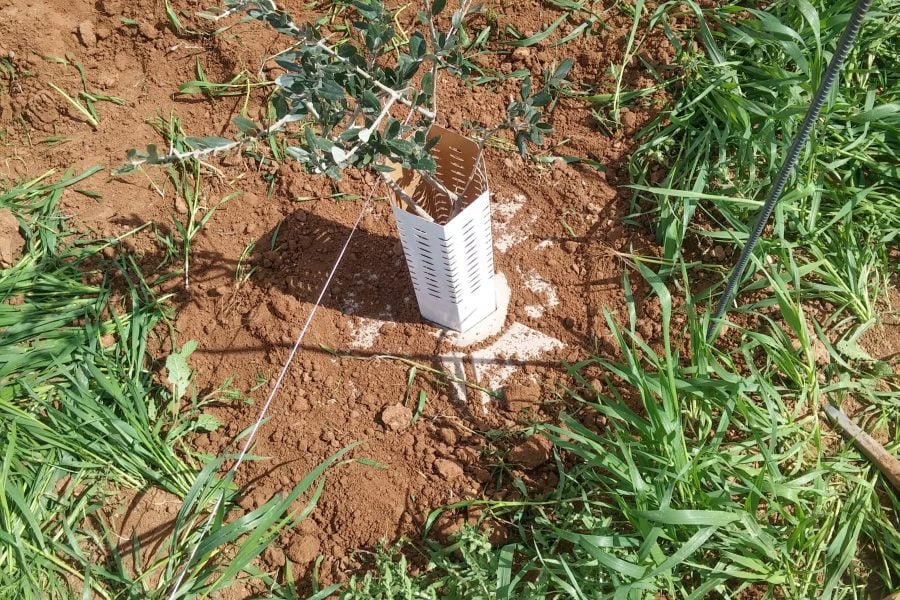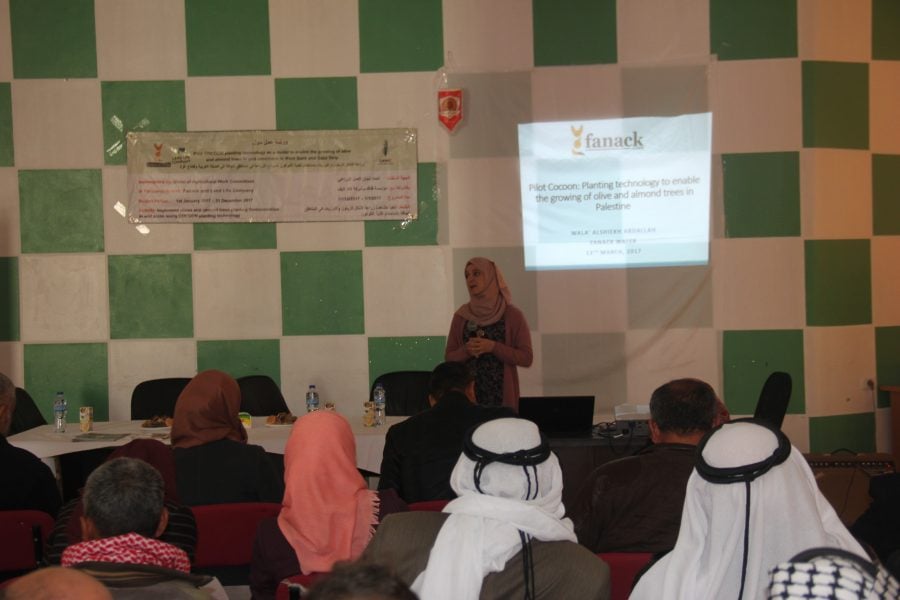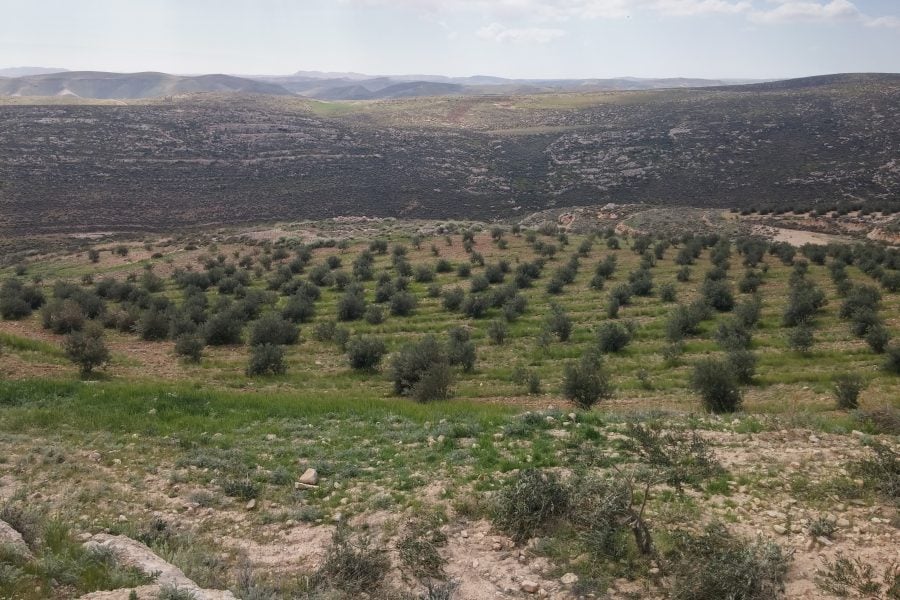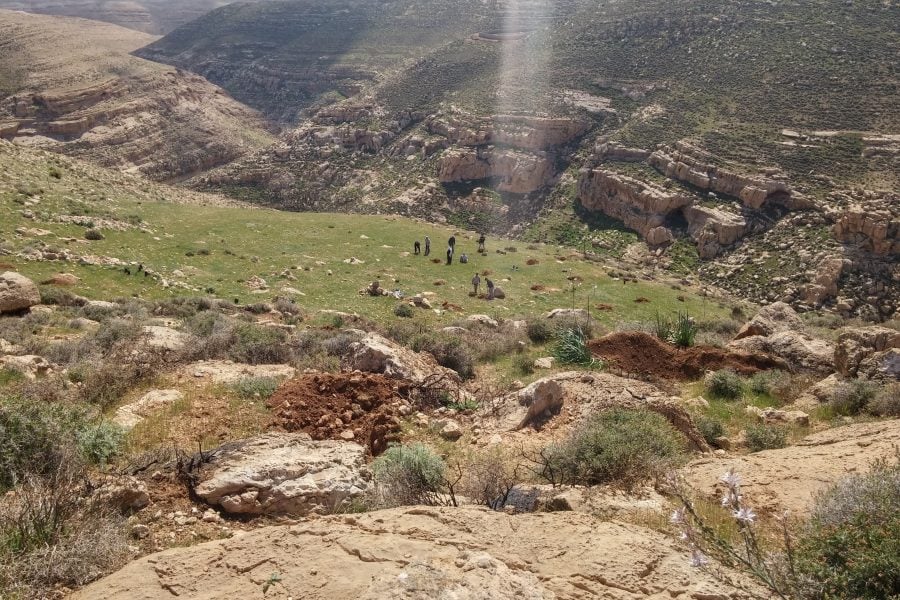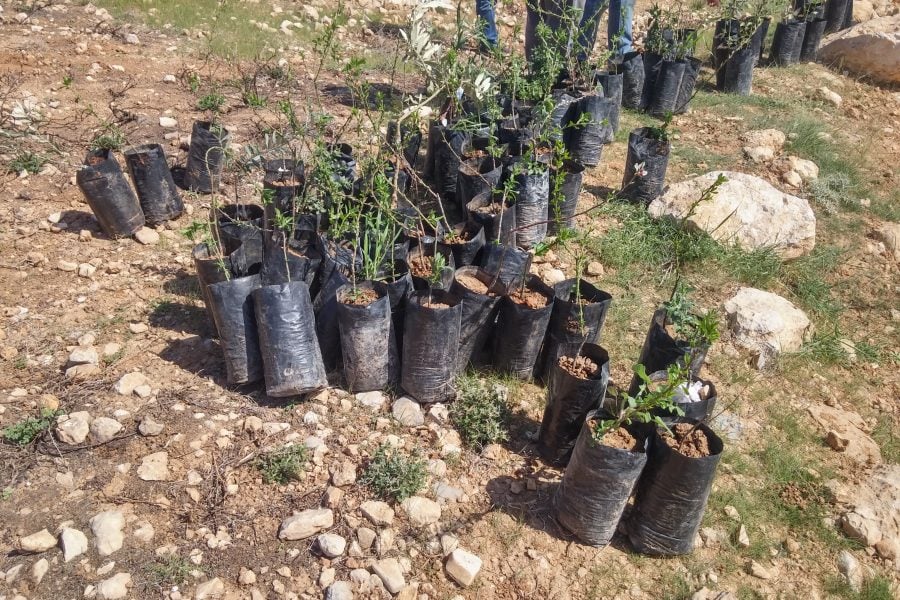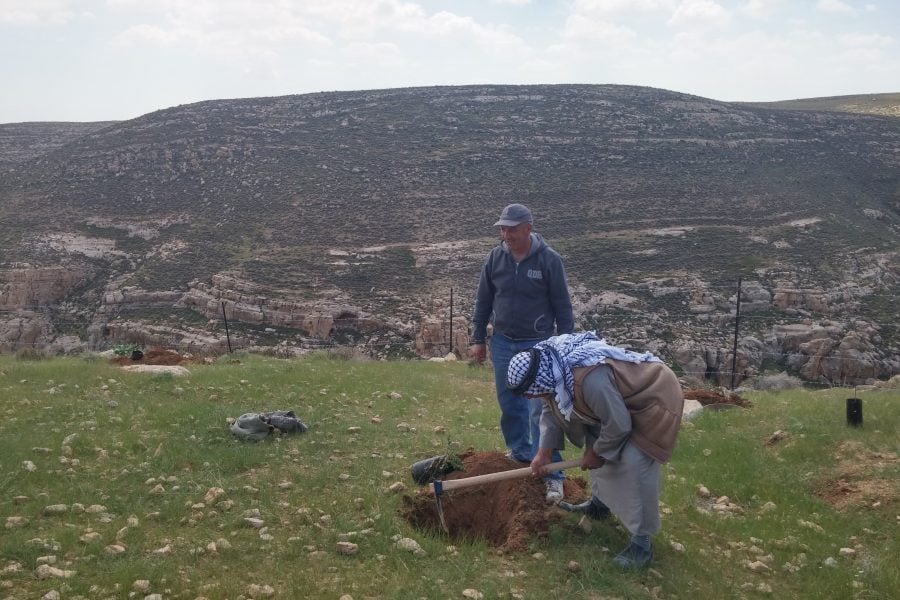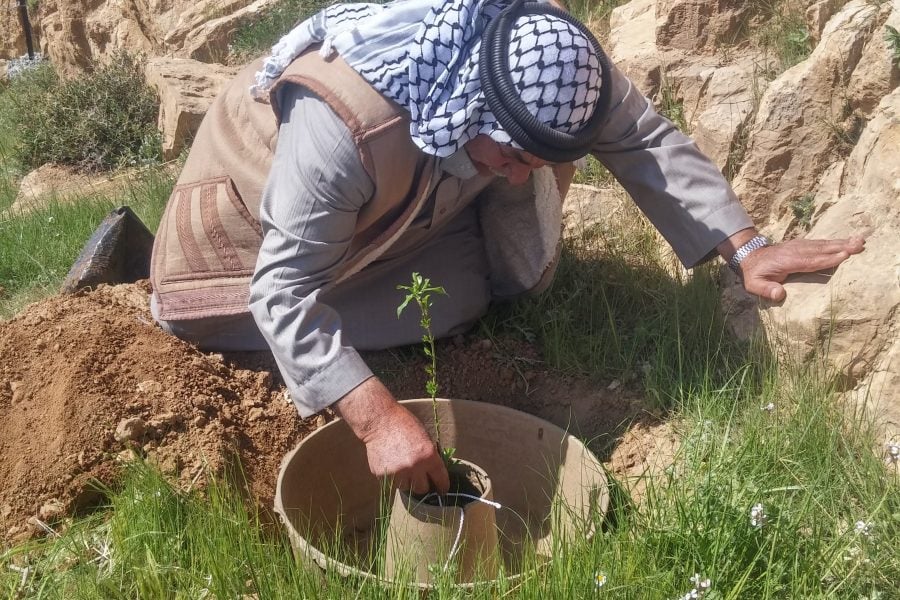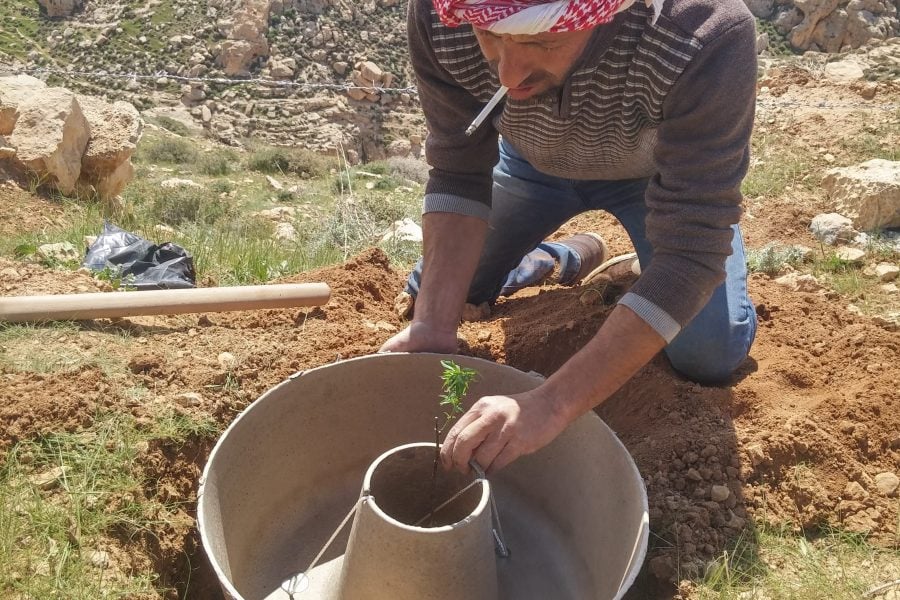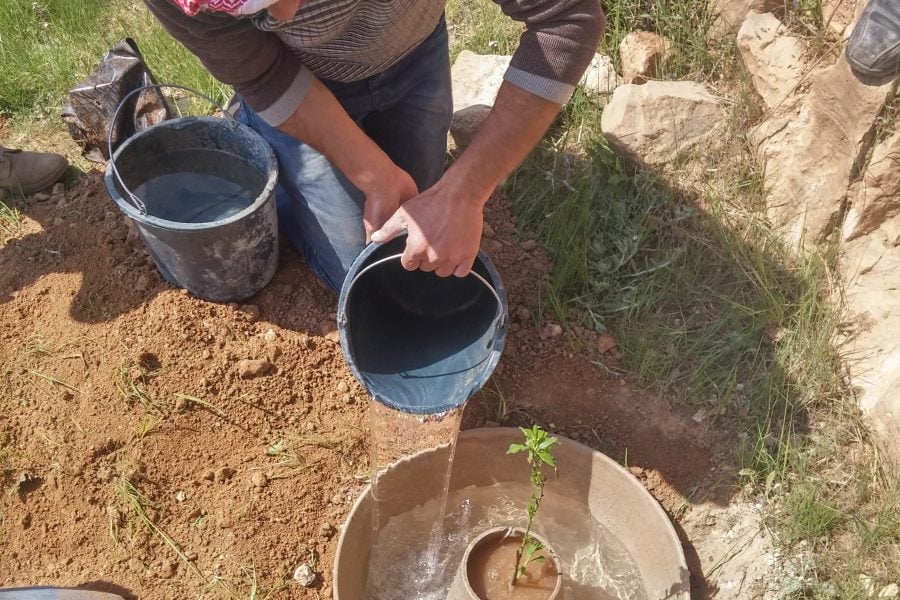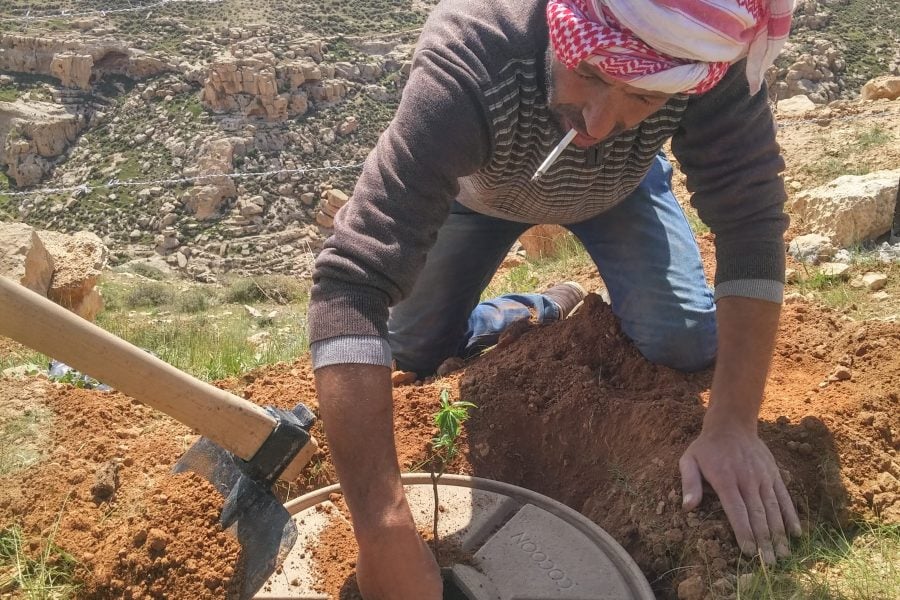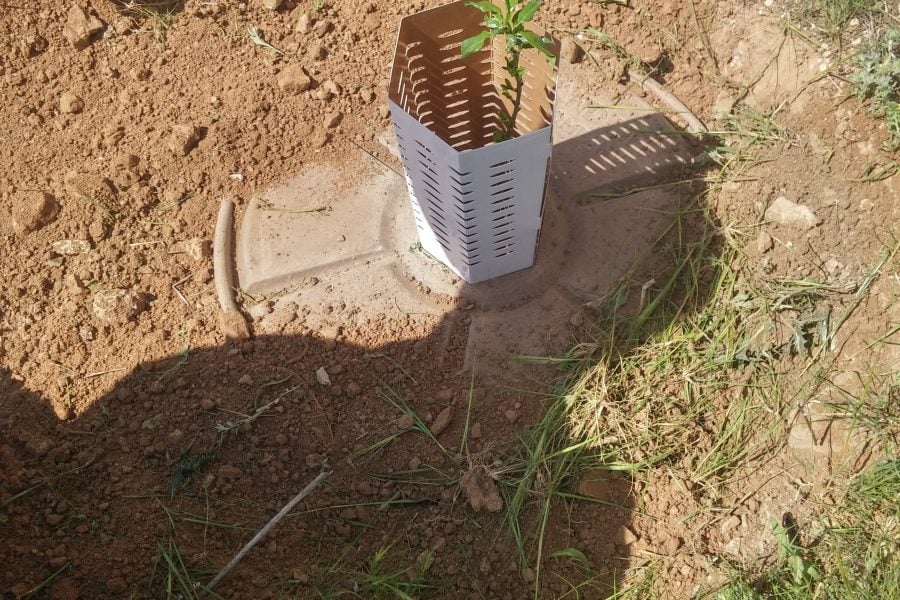
Project overview
In 2016, Fanack, Land Life Company (LLC) and the Union of Agricultural Work Committees (UAWC) initiated a pilot project to bring the innovative COCOON planting technology to Palestine.
LLC was founded in 2014. In 2015, it won the Postcode Lottery Green Challenge, one of the world’s largest competitions for sustainable entrepreneurship, and has since collaborated on large-scale land restoration projects, including restoring the monarch butterfly habitat in Mexico with the World Wildlife Fund (WWF). LLC is also the inventor of the COCOON technology, which is a sustainable, scalable and low-cost solution for growing trees in dry and degraded soils without irrigation.
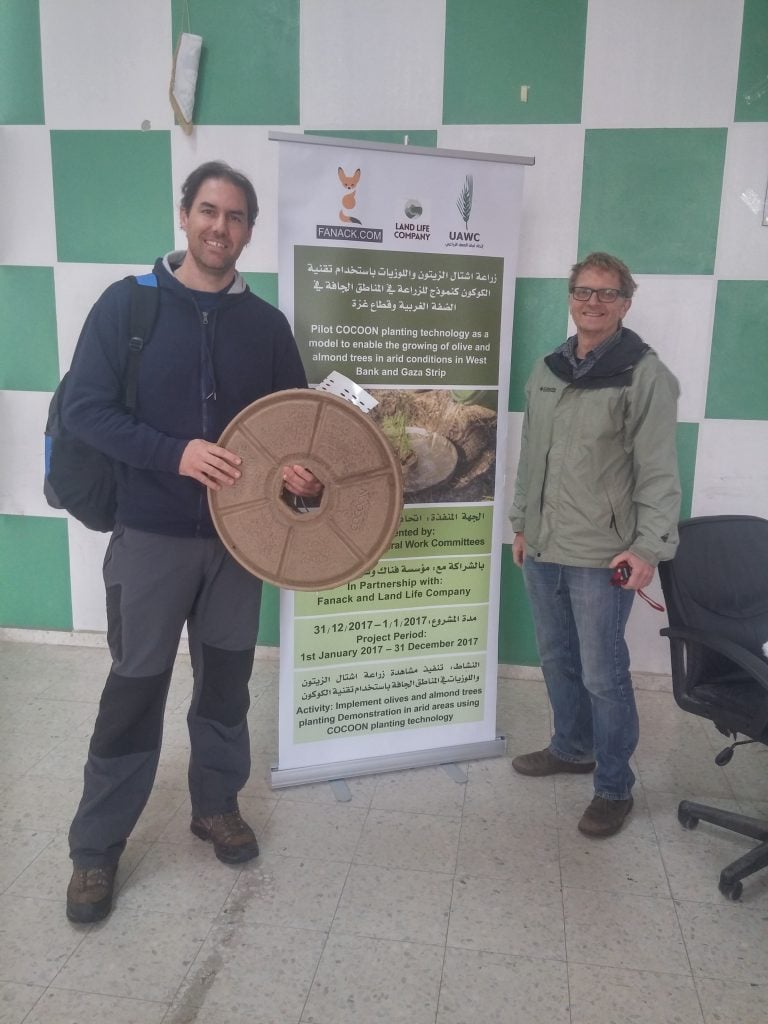
The UAWC is a Palestinian non-profit organization, established in 1986 by a group of volunteers and agronomists in response to the vulnerable socio-political situation of farmers that resulted from Israeli confiscation of land and water in occupied areas. Agricultural committees were formed in the West Bank and Gaza Strip to set the farmers’ priorities and help the UAWC implement its programmes and community activities. The UAWC’s vision is to achieve a free, democratic Palestinian society that is food secure and enjoys social justice and sovereignty over its resources; where farmers, both male and female, contribute effectively in all aspects of life.
About the COCOON technology
The COCOON is a low-cost, biodegradable incubator for young tree seedlings, enabling trees to be planted sustainably and affordably in arid and degraded soils. A water reservoir, which is filled once at the planting stage, is designed to prevent evaporation and weed growth around the base of the tree. Water is transported from the reservoir to the tree using wicks. As the reservoir degrades and becomes organic substrate for the soil, it leaves behind a micro-catchment that collects surface run-off when it rains. A shelter connected to the base of the COCOON protects the seedling from harsh weather conditions and small animals, particularly during its first year. Finally, natural fungi are added to the soil around the roots. These promote a healthy root system, so that in time the tree can extract enough water from the sub-surface supply to live independently. The technology requires no follow-up irrigation and increases the survival rates of young seedlings by an average of 75-95 per cent. It also helps to restore the top soil and consequently improve rainfall infiltration.
Aims of the project
The main aims of the COCOON pilot project are to introduce knowledge and innovative ideas to Palestine and, consequently, to contribute to a healthier environment and increased agricultural production in areas with degraded land and scarce water sources. This will be achieved by planting 200 trees in West Bank and 300 trees in Gaza using the Cocoon planting technology.
The more specific objectives are to:
• Replant olive and other trees on degraded Palestinian land;
• Support farmers and their families by creating job opportunities and income-generating activities;
• Encourage Palestinian universities to conduct scientific research, for further roll-out of the technology;
• Protect and preserve the environment;
• Educate Palestinians on the benefits of trees, healthy ecology and water efficiency.
Benefits of applying the COCOON technology in Palestine
Palestine suffers from severe water shortages due to the Israeli occupation and restrictions on natural water resources, as well as high aridity and limited rainfall in several parts of the country. Agriculture is the largest consumer of water, accounting for more than 62 per cent of total use.[1] The amount of water currently used for irrigation is about 141 million cubic metres per year (MCM/yr) to irrigate around 200,000 dunam (1 dunam is about 0.1 hectare), of which 55MCM/yr is used in the West Bank and 86MCM/yr in the Gaza Strip.[2]
In this context, the agricultural use of the COCOON technology in Palestine is very applicable. In addition, the one-off irrigation of seedlings makes the technology valuable to Palestinian farmers who do not have regular access to their land due to Israeli restrictions (for example, land located behind the separation wall).
The COCOON pilot project in the West Bank
13 March, 2017
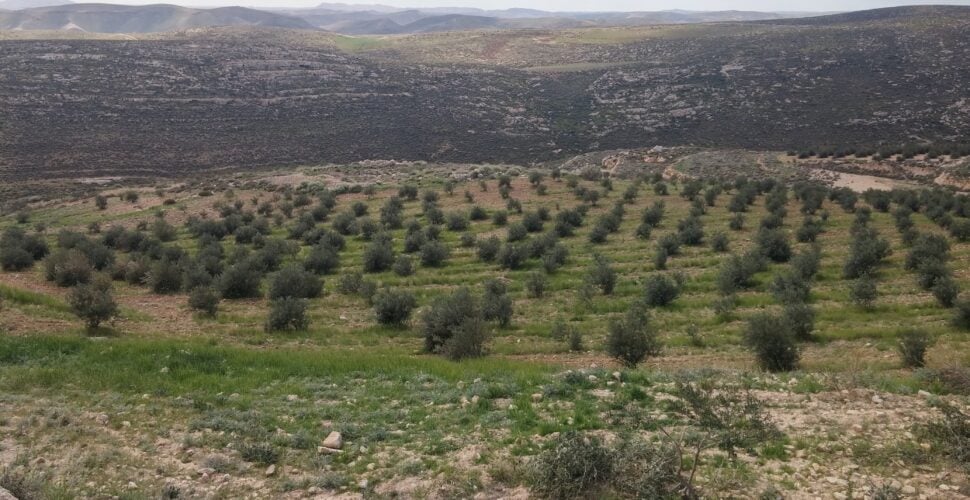
The day started with the opening ceremony. This was held in al-Dahriya Youth and Sports Centre and attended by different parties, including municipal and government representatives, local farmers and print and broadcast media.
In the early afternoon, the participants went to the first planting site in Wad Ben Saleh, al-Dahriya. The area is flat, with a very limited supply of water.
The LLC team trained the participants to use the COCOON technology before the planting started. By the end of the day, 36 olive trees had been planted.
14 March, 2017
Fanack, LLC and the UAWC teams moved to the second planting site in Wad al-Reem, Saer. The site is in a steep, mountainous area. The area is remote and not connected to a water supply system. In addition, the average rainfall is very low at around 200mm per year. Traditional planting in this area is difficult, since the soil cannot capture run-off, which flows down to the valley. However, the COCOON technology helps the soil to retain the run-off by creating a small water reservoir around each tree.
As on the previous day, the LLC team trained the participants to use the technology before almond and olive trees were planted.
Future Cooperation Possibilities
In the second phase of the pilot project, olive trees will be planted in Khan Yunis, Gaza. Fanack, LLC and the UAWC are planning to initiate additional projects in the near future.
COCOON planting technology for the first time in Palestine: video
For decennia, Palestine has suffered from severe water shortages due to limited rainfall, the political situation and restrictions on natural water resources.
To reforest land damaged by war and water shortages, Fanack, Land Life Company (LLC) and the Union of Agricultural Work Committees (UAWC) came together in 2016 to bring the innovative COCOON planting technology to Palestine.
In the year ahead Fanack and LLC will plant 3,000 productive and non-productive trees in Kefar Sava with various forestry species. Similar small scale plantings will be implemented in 20 agricultural schools along the demarcation line.
We will work with the Palestine Institute of Biodiversity and Sustainability (Palestine Museum of Natural History – Bethlehem University) and plant Cocoons in the Bethlehem region to teach students and agriculture professionals about this new water-saving reforestation tool.
For more information on water situation in Palestine, please read our country file on Palestine.
For more information on Cocoon planting technology, please visit: Land life company or MENAQUA
[1] Palestine Country file, Fanack water, available at: https://water.fanack.com/palestine/
[2] PWA, 2014c. Final Water Sector Policy and Strategy, 2014. Available in Arabic at: http://www.wafainfo.ps/pdf/Water_Strategy_2014.PDF.

